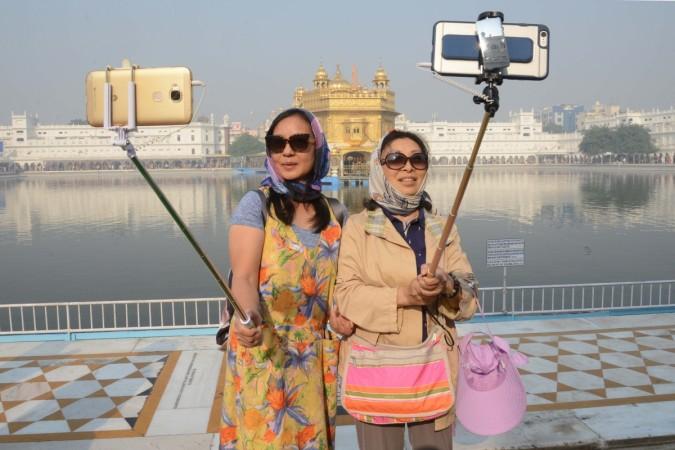China and its news outlets — especially the state-controlled variety — seem to be changing their tone on India in a marked manner.
It has gone from India-bashing in the past to now warning its own citizens against getting into trouble in India through their own fault and analysing the internal conditions of the country and the goings-on within it.
Global Times — the Chinese newspaper that functions under the aegis of the state-run People's Daily — has even welcomed US-India defence ties, albeit with certain riders.
This is marked departure in narrative from the times when the newspaper, through its editorials and opinion pieces, often disparaged India. It had even called the country "haughty" and "smug" a little more than a week ago?
So what changed? Is this a result of the strong response that India gave China over the Doklam standoff?
![[Representational image] India China](https://data1.ibtimes.co.in/en/full/647862/india-china.jpg?w=599&h=397&l=50&t=40)
Analysis of India
Chinese media — and more specifically Global Times — had in the days after the resolution of the Doklam standoff, disparaged India over its internal situation, pointing to the violence perpetrated in the states of Punjab and Haryana by followers of Dera Sacha Sauda chief and self-styled godman Gurmeet Ram Rahim Singh after he was convicted in two rape cases.
On Wednesday, an Op-Ed article in the daily tackled the same issue as well as a few other developments, but had this to say: "Chaos has become so pervasive that the country with numerous ethnicities, races, religions and languages, seems to be steeped in disorder."
While that may seem like a continuation of the earlier narrative, as is most of the article which details political, religious and other turmoil within India, the article ends on a positive note.
It says: "...Considering the history of India since independence, chaos in the country will likely be controllable owing to the flexibility of its political system, tolerance of its society, the patience of its people and improved governance."
The article concludes: "It is unlikely that conflict and chaos will evolve into a subversion of its system and bring adversity to its people."

Chinese advisory to tourists
Another area where there is a marked change in tone is the manner in which China has warned its citizens visiting India.
China already has two such travel advisories in place, and Bangalore Chinese Chamber of Commerce secretary general Hu Tu had in early August talked of how Chinese nationals were attacked in India — despite the truth being that the attacks were in no way related to the victims' nationality.
Now, China has issued another advisory to its citizens coming to India, and this is a tourist advisory. According to a Global Times report, the Chinese Embassy in India has warned Chinese tourists visiting India against certain kinds of behaviour.
The report quoted the embassy as saying: "Some Chinese citizens visited Andaman and Nicobar Islands, which are restricted areas for foreigners, without gaining permits from India. Some tourists were asked to return upon arrival; some were even arrested or investigated."
The embassy also urged Chinese tourists not to "photograph India's border and military facilities and vehicles."
It also said: "While travelling on India's border neighbouring Nepal, avoid visiting border markets, and do not enter the territory of other countries by mistake."
The warnings are clearly regarding mistakes and faults of Chinese citizens, and this is a departure from some previous warnings, which had claimed India could be an unsafe place to travel for Chinese tourists or citizens in general.
![Chinese soldiers stand next to barbwires, which divides the two countries at the Indo-China border at Nathula Pass in the north eastern Indian state of Sikkim, April 4, 2001. [Representational image] Sikkim, Nathula Pass](https://data1.ibtimes.co.in/en/full/653700/sikkim-nathula-pass.jpg?h=450&l=50&t=40)
Doklam reply effect?
The change in tone by China may be chalked up by some to the strong reply India had given to the neighbouring country over the Doklam stand off.
While China had threatened India over a number of issues — from entering Kashmir and other parts of India to imminent armed conflict — after it had changed the status quo in the tri-junction area where Bhutan is the third party, India had refused to back down and withdraw troops from the area.
This had put a spanner in the possible start of salami tactics with which Beijing might have been looking to capture the area. China has since then been a little more wary of India.

















